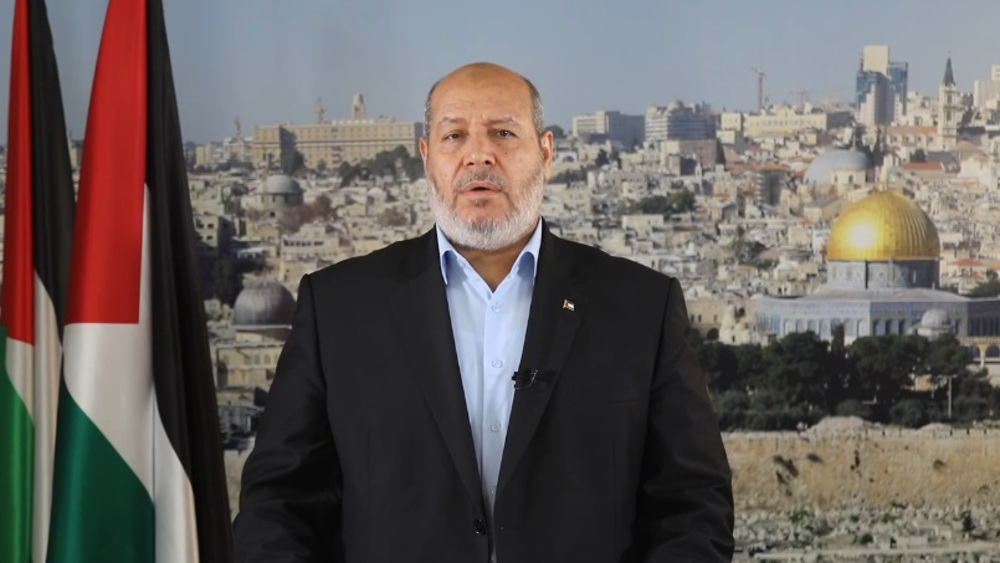Tillerson working to keep US in Iran deal: Report
US Secretary of State Rex Tillerson has reportedly been working on a plan to keep the United States in a 2015 multilateral nuclear deal with Iran despite vociferous rhetoric against the agreement by his boss, President Donald Trump.
The CNN on Tuesday cited several US officials and Western diplomats as saying that Tillerson is working with congressional lawmakers to amend US legislation that requires the US president to report on Iranian compliance with the deal every three months.
The deal, known as Joint Comprehensive Plan of Action (JCPOA), was struck in July 2015 and began being implemented in January the next year. Apart from Iran and the US, the other parties to the agreement are France, Russia, Germany, China, and the UK.
Trump, who ran for presidency on the Republican ticket, has long despised the deal in part because he perceives it as a legacy of Democratic former president Barack Obama. Since taking office a year after the deal took effect, Trump has twice certified Iranian compliance under the specific American law that Tillerson is now reportedly planning to have amended.
Those two certifications have been offered only half-heartedly, and indications are that a third one — due shortly in mid-October — may not be forthcoming.
All the other parties to the deal have been citing repeated reports by the International Atomic Energy Agency (IAEA) — the official institution in charge of verifying Iranian compliance — to stress that the deal is working and must stand.
The US would thus risk losing the partnership of its European allies and Russia and China if it went ahead with a unilateral withdrawal from the JCPOA. Observers have long considered that prospect to be one that would seriously dent the US’s stature and credibility.
Perhaps mindful of that unsavory outcome, Tillerson has been working centrally with Senate Foreign Relations Committee Chair Bob Corker to amend the so-called Iran Nuclear Agreement Review Act of 2015, under which the US president has to report Iranian compliance to the Congress every 90 days.
Corker, an early opponent of the deal who cosponsored the bill, has more recently said the US would be isolated if it withdrew unilaterally from the JCPOA while Iran was in compliance with it.
One senior administration official said, “Tillerson has said the problem with the JCPOA is not the JCPOA. It’s the legislation.”
Tillerson reportedly told foreign ministers from the six other parties to the deal about the contours of his plan during a meeting held on the sidelines of the United Nations General Assembly (UNGA) meeting in September.
Under the deal, Iran agreed to apply certain limits to its nuclear program, and in return, the US, the United Nations and the European Union terminated all nuclear-related sanctions against Tehran.
Trumpian opposition
Trump, who campaigned mainly on a platform of undoing every major achievement of his predecessor, has previously threatened to “rip up” the Iran deal, has called it “the worst deal ever,” and, most recently, called it an “embarrassment” to the US.
During his first address to the UNGA last month, Trump labeled the deal “one of the worst and most one-sided transactions the United States has ever entered into.”
Observers believe the US president has effectively boxed himself in with the harsh rhetoric, and Tillerson’s plan may be a face-saving way out.
According to the CNN report, Tillerson wants the bill to change so that presidential verifications of Iranian compliance would not be required and that, instead, the US administration would regularly report on other Iran-related issues, such as its missile defense program and regional activities.
The CNN said “several US officials” had told the news network “that the White House has seemed open to the plan.”
But it was unclear how far Tillerson’s plan could go. He has had his differences of opinion with Trump, and the US president has in the past displayed impetuous behavior on matters of policy.
Meanwhile, US Defense Secretary Jim Mattis has said Trump’s administration has to consider remaining a party to the Iran deal.
Mattis is an Iran hawk. His tour in the United States Central Command was in 2013 cut short by the Obama administration, “which believed he was too hawkish on Iran,” according to The New York Times.
But, together with Tillerson’s plan and Corker’s cooperation, Mattis’ Tuesday remarks seem to indicate a growing realization within the US establishment that, despite all the rhetoric by Trump, quitting the Iran deal unilaterally may not be worth the price for Washington.
Jan. 15: ‘Axis of Resistance’ operations against Israeli occupation
VIDEO | US fires: Criticism mounts over govt. failure to respond
VIDEO | Fears, hope in Gaza amid intensified ceasefire efforts
VIDEO | Press TV's news headlines
Hamas: Ceasefire agreement result of steadfastness, resistance in Gaza over 15 months
Hamas thanks Iran, Resistance Front following achievement of ceasefire in Gaza
'Capitulation': Israeli officials and media concede Gaza defeat as truce unfolds
'Gaza has won': Social media users react to ceasefire with mix of relief, joy














 This makes it easy to access the Press TV website
This makes it easy to access the Press TV website